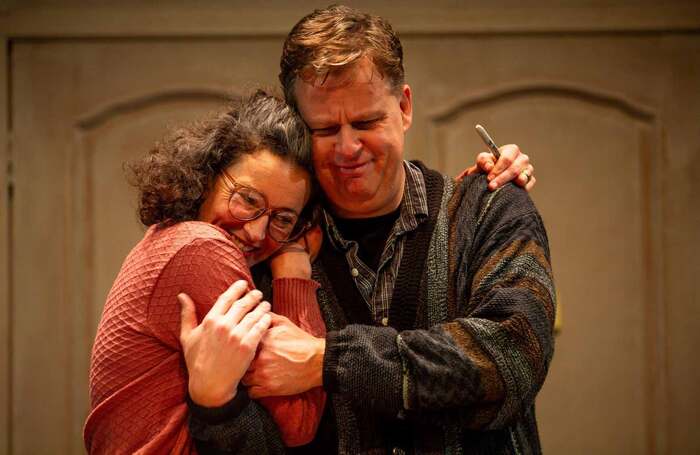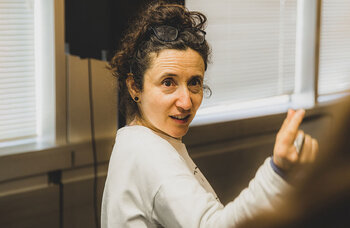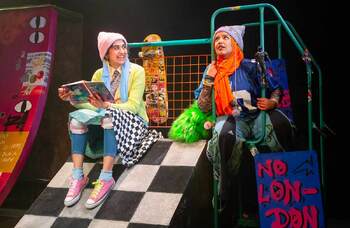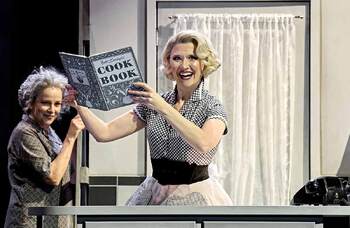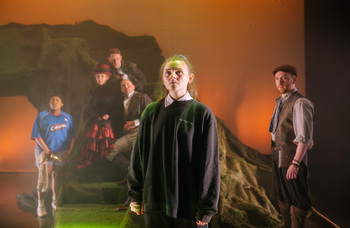The Promise review
Gentle, thought-provoking mood piece foregrounds the under-represented stories of deaf people living with memory loss
Establishing an elegiac tone from the outset, this bittersweet drama from deaf-led theatre company Deafinitely Theatre gently explores the complex challenges faced by deaf people who experience dementia. Co-written by Melissa Mostyn and director Paula Garfield, the bilingual production is delivered primarily in British Sign Language, alongside passages of spoken English and seamlessly integrated captions.
The story centres on deaf educator Rita, following her from her first day as a literature teacher at a specialist school, through to the last months of her life, as she gradually loses her memories and drifts apart from her son, Jake. Along the way, the clunky, often declamatory script touches on a range of tangentially related subjects, from the damaging legacy of Thatcherism, to the AIDS crisis, to the financial burden borne by families in need of home carers.
Garfield sets an unhurried pace, allowing characters more than enough time to stew in their anxieties. Striking moments of tenderness, compassion and poetry stand out among often intentionally banal conversations. Towards the play’s end, as Rita’s recollections become increasingly unreliable, scenes begin to repeat themselves, with small changes charting the character’s gradual deterioration. The rapid shifts between these scenes are accomplished with slick fluidity, thanks in part to the flexibility of Paul Burgess’ uncluttered set, which features a dove-grey wall riddled with hidden doors, each opening on to a different, unexpected space: a refrigerator, a closet or a surprising vista of cherry trees in bloom.
Continues...
Animated video projections, designed by Ben Glover, depict constant flurries of pink blossom. Later, the imagery becomes increasingly scrambled and bewildering, showing airport departure boards and fragments of fluttering, torn paper. A brief montage of smiling, affectionate pensioners is calculated to tug the heartstrings.
Anna Seymour’s nuanced performance invests Rita with a sense of deep dignity and quiet sadness. She begins the play bursting with enthusiasm, an endearingly cheeky smile on her face as she challenges her students to interpret a smartly reworked Shakespeare sonnet, translated into BSL by William Grint. But as the time passes, Rita is drained by her disease, becoming increasingly withdrawn and distracted, gradually losing her ability to communicate.
James Boyle plays Rita’s adult son Jake, forced to part temporarily from his husband and job in the Netherlands to become a primary carer for his mother. Boyle’s committed, conflicted performance drives home the inner struggle of a character caught between duty to his parents and his right to pursue his own happiness.
Ultimately, it is Jake’s battle to preserve his mother’s dignity that drives the plot forward. And though the play never digs deeply enough into the complex issues it raises, it paints a poignant and recognisable portrait of a family holding together in adversity.
More Reviews
Recommended for you
More Reviews
Recommended for you
Most Read
Across The Stage this weekYour subscription helps ensure our journalism can continue
Invest in The Stage today with a subscription starting at just £7.99
